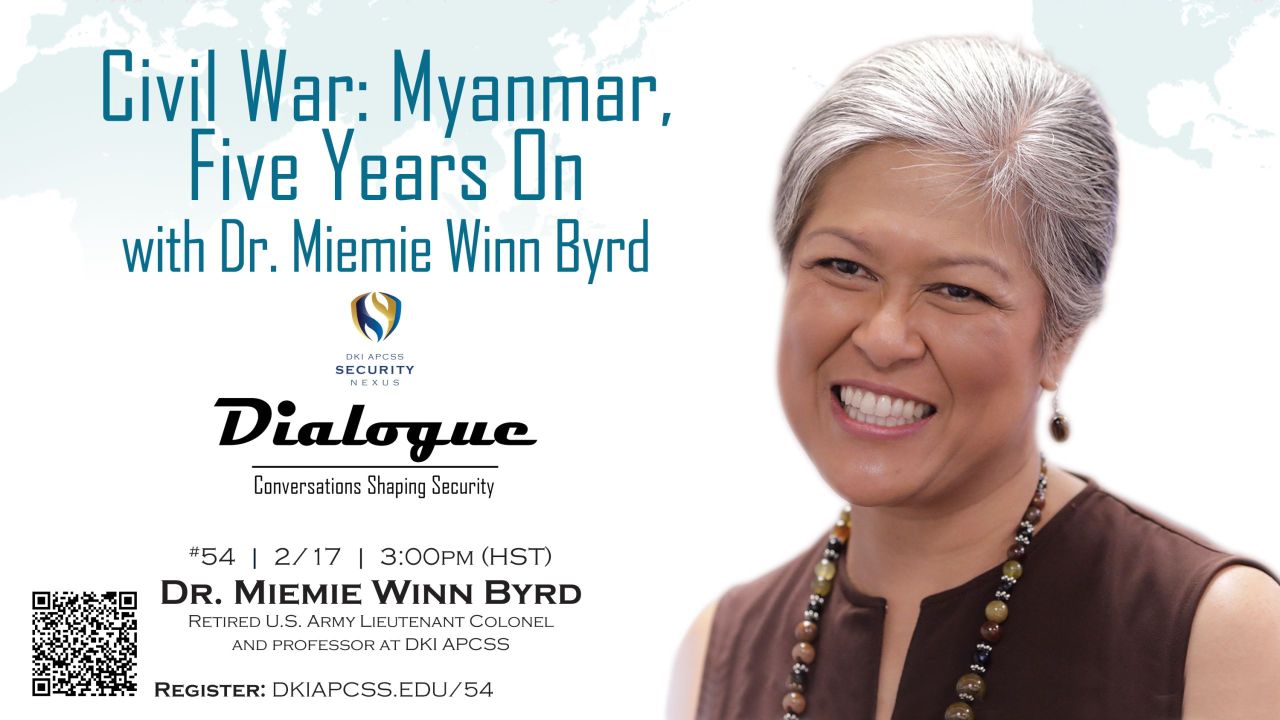By Dr. James M. Minnich
January 14, 2025
South Korea’s Democratic Turmoil: A Test of Resilience
South Korea, often hailed as a beacon of democracy in Asia, finds itself navigating a profound political crisis that has raised questions about its democratic stability and governance. The impeachment of President Yoon Suk-yeol following his December 3rd declaration of martial law has sent shockwaves across the nation and the region. While the swift response from South Korea’s institutions and the public demonstrates the strength of its democratic framework, the crisis also highlights vulnerabilities that demand attention.
This critical issue was the focus of Dialogue Episode 36, where I had the privilege of hosting DKI APCSS Professor Dr. Lami Kim to explore the broader implications of this historic crisis. Reflecting on the situation, Dr. Kim observed, “President Yoon’s declaration of martial law was not a spontaneous move; it was premeditated. His aides testified that he had been discussing the option for months, believing it was the only way to tackle his mounting political and personal challenges.”
A Premeditated Power Grab
President Yoon’s martial law declaration, framed as a response to “pro-North Korean threats” and political unrest, was far from spontaneous. Yoon’s actions, including attempts to dissolve the National Assembly and paralyze democratic institutions, drew comparisons to South Korea’s authoritarian past, particularly Chun Doo-hwan’s 1979 coup. However, the failure of Yoon’s self-coup underscores the evolution of South Korean democracy. Dr. Kim noted, “South Korean citizens have become incredibly mature in their democratic practices. Their peaceful and well-organized protests show the strength of civil society, which, alongside a free press and nonviolent dissent, helped ensure the failure of Yoon’s self-coup.”
Institutional Strengths and Structural Flaws
The response of South Korea’s National Assembly and Constitutional Court was swift, as they moved to check Yoon’s overreach. Yet, this episode has also revealed systemic weaknesses. The presidency’s extensive powers, inherited from South Korea’s authoritarian past, remain a point of concern. “South Korea’s democratic institutions acted decisively, but the fact that such an event could occur highlights the need for structural reforms,” Dr. Kim explained. Polarization in South Korean politics exacerbates these vulnerabilities. “Even those who disagree with Yoon’s actions continue to support him because they see the opposition as the greater threat,” Dr. Kim remarked. This factionalism not only undermines the democratic process but also erodes public trust in governance.
Regional and Global Implications
The crisis has strained South Korea’s relationships with its allies. The United States, in particular, expressed concern over the lack of communication during the martial law declaration. “A cardinal rule of alliances is avoiding surprises, yet the Yoon administration did not even inform Washington of the martial law declaration,” Dr. Kim emphasized. Rebuilding trust will be essential moving forward.
Economically, the crisis has exacerbated longstanding issues, including investor skepticism and the “Korea Discount.” At a time when South Korea seeks to position itself as a global pivotal state, its internal instability risks undermining its international credibility.
Lessons for Democracy
South Korea’s current predicament serves as a cautionary tale for democracies worldwide. “This crisis shows that democracies, no matter how mature, are never immune to backsliding,” Dr. Kim stated. Vigilance is key, not just in emerging democracies but globally, as even robust systems can falter under the strain of polarization and disinformation.
Having lived and worked in South Korea during Chun Doo-hwan’s coup and martial law in the early 1980s, I’ve seen firsthand the challenges faced by a nation striving toward democratic stability. South Korea’s journey through this crisis will serve as both a warning and an inspiration for nations grappling with similar challenges.
Book Recommendation
For those seeking deeper insights into South Korea’s historical past, Dr. Lami Kim recommended Human Acts, a novel by Nobel Laureate Han Kang. The book draws upon the democratization uprising in Gwangju, South Korea, in May 1980, offering a poignant exploration of the human cost of authoritarianism.
Disclaimer: The views expressed in this video are those of the participants and does not necessarily reflect the views of DKI APCSS or the US government.









Leave A Comment